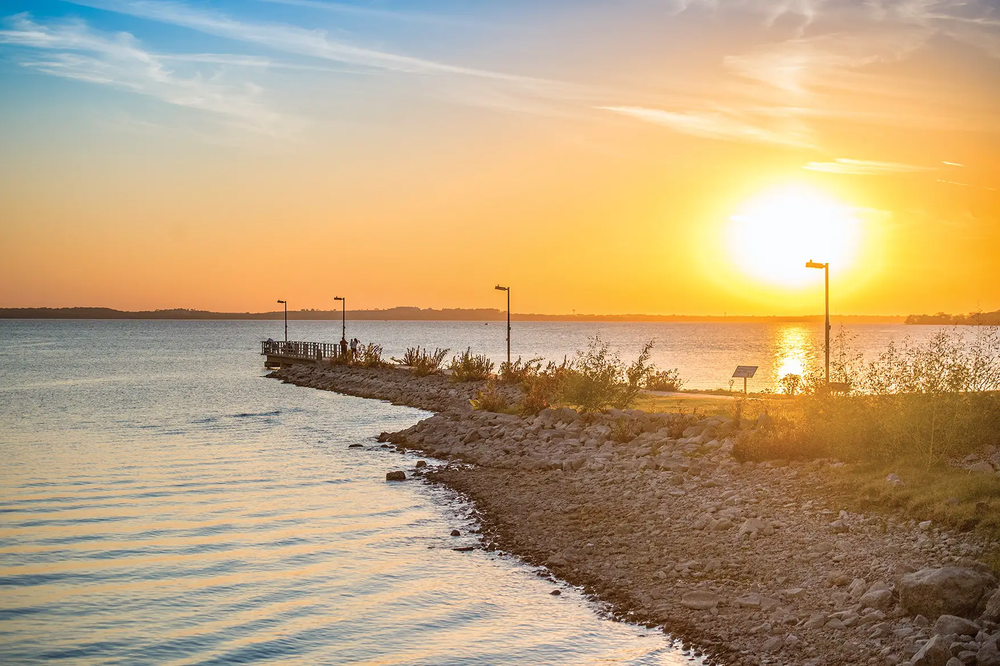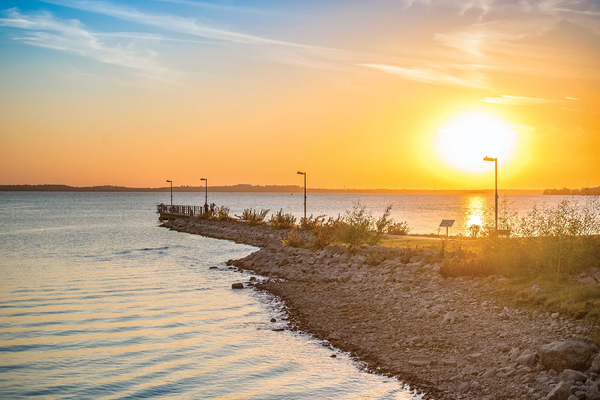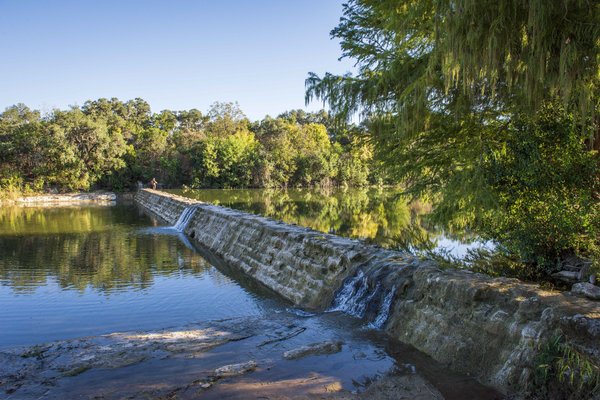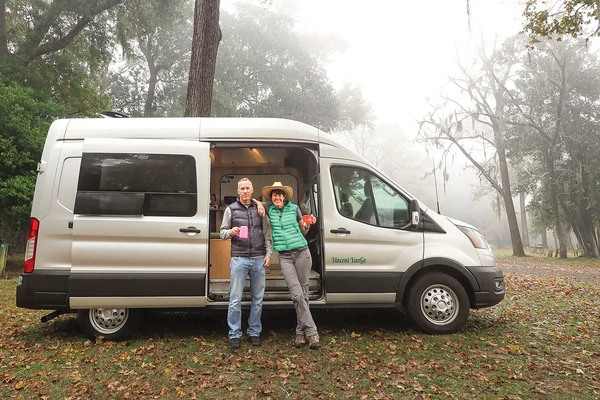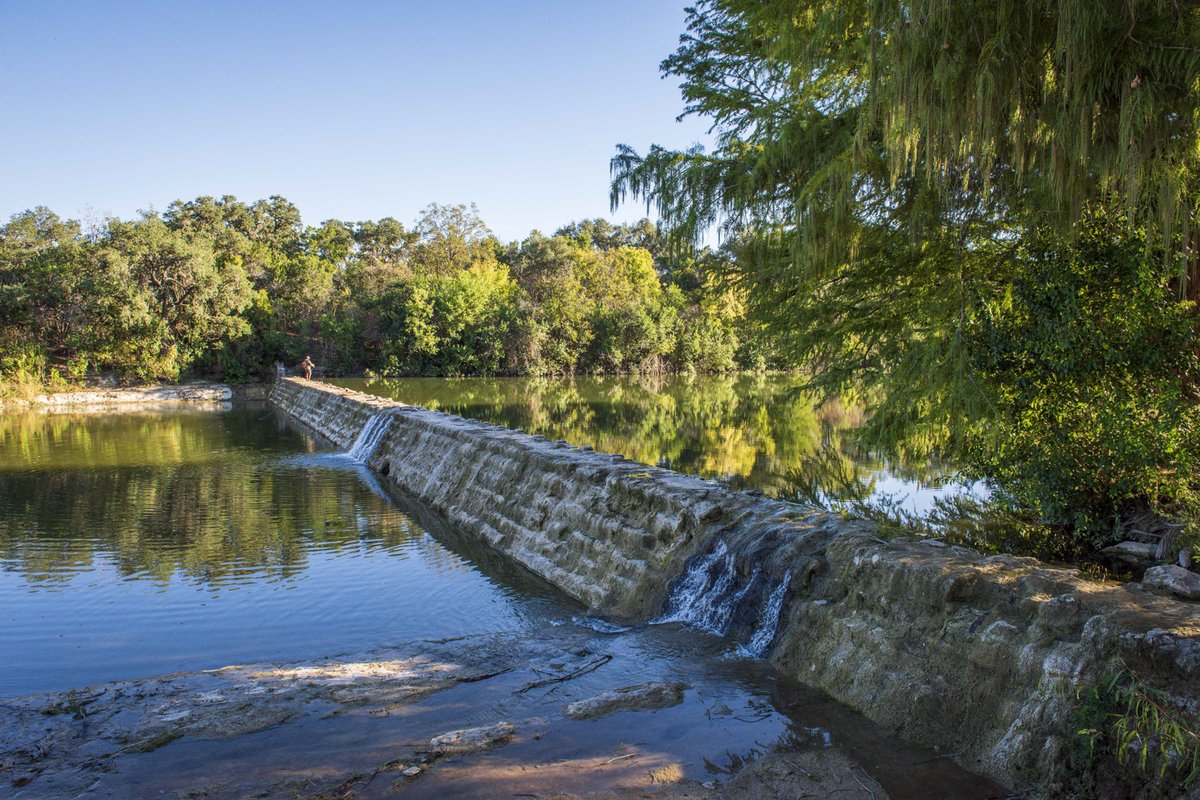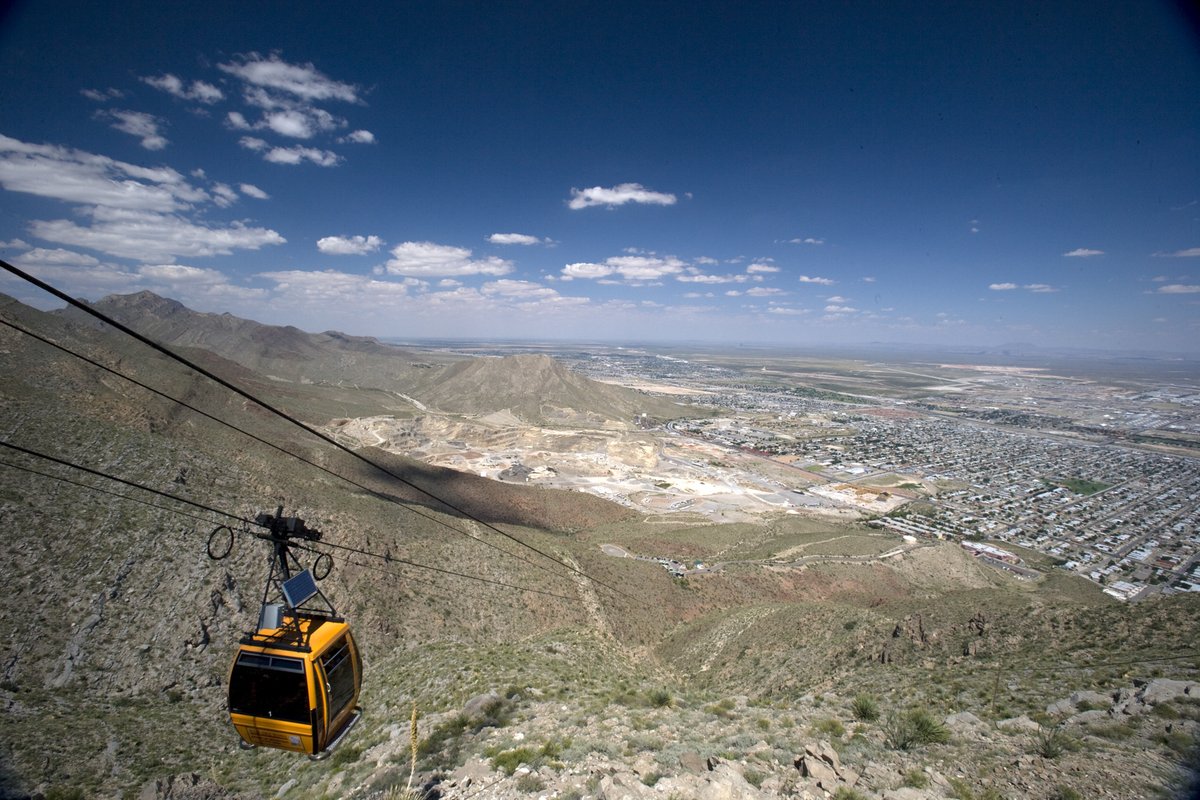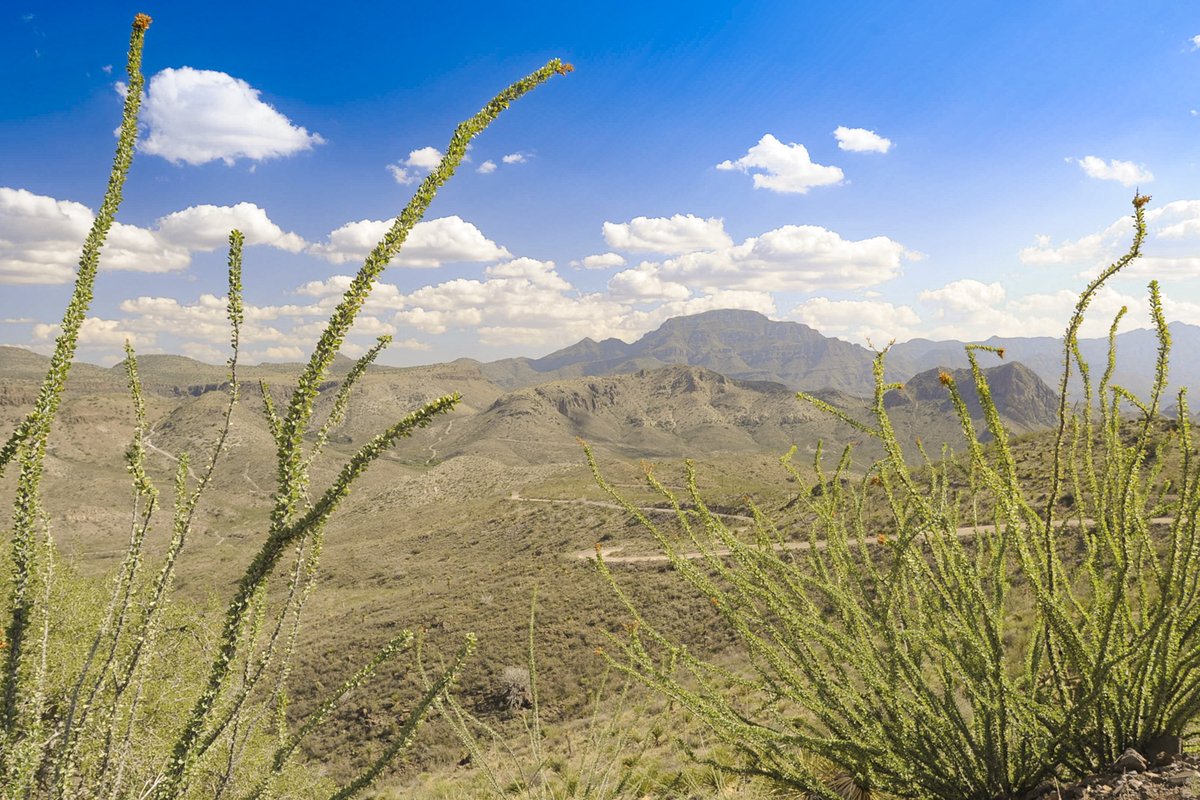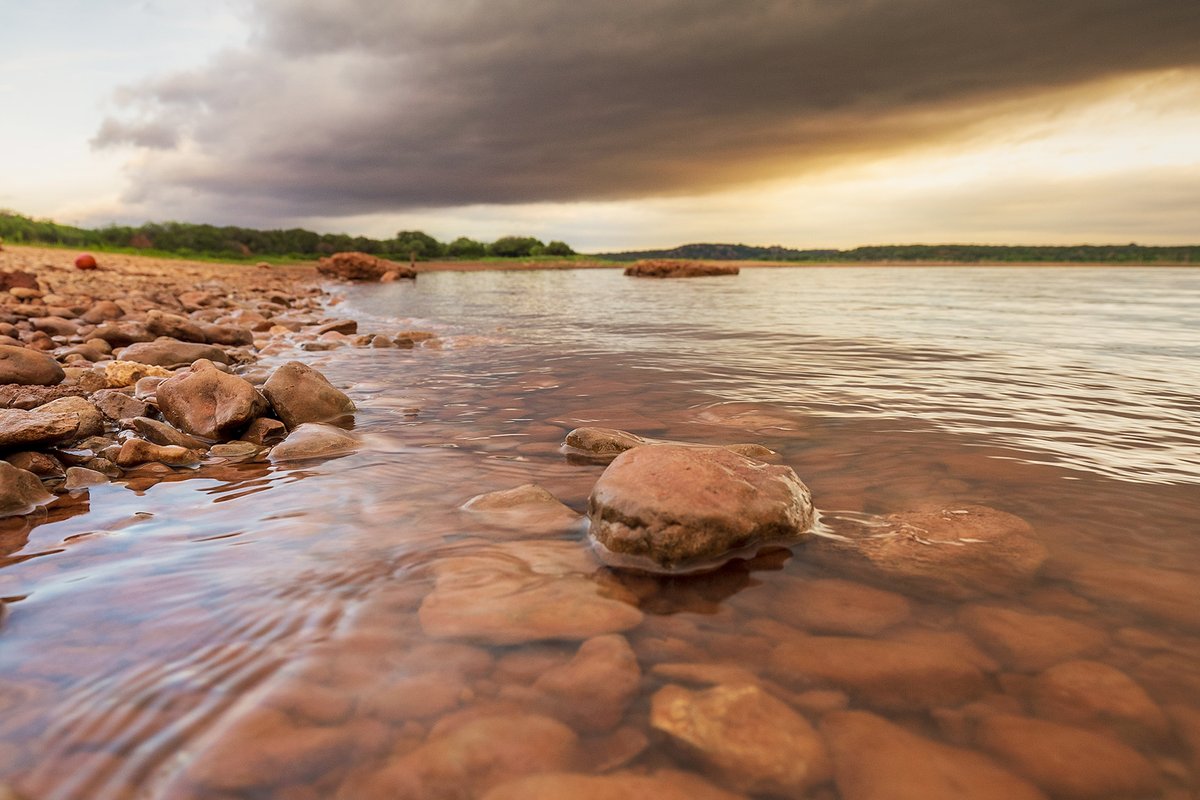It’s 7:30 a.m., and Robbie Merritt is getting ready to go to work. His office is 6,600 acres of state parkland surrounding Ray Roberts Lake near Denton. It’s also his home.
He pins his badge to his superintendent uniform, dons his white cowboy hat and grabs his radio before heading out to his truck.
Across the state, a new day is dawning on 88 other Texas State Parks. It’s a beautiful October morning, the first real break from the heat. As the sun lights up the land from the Gulf to the desert, thousands of Texans are heading to state parks for a day outdoors. The parks will touch the lives of everyone who enters, countless stories about to unfold.
This is a day at one of them.
A man emerges from Ray Roberts Lake State Park’s small headquarters to raise the flags, as he’s been doing for the past 17 years. Randy Killham started here as a summer employee, desperate to escape the fluorescent lights of his retail job. Working his way up to office manager, he now checks in thousands of visitors every year seeking their own escape.
Cars have been trickling in since the gate opened at 6 a.m. They’ll soon become a steady stream, and the park will reach its capacity limit by noon.
But right now, Randy takes a moment to enjoy his pocket of peace before the workday kicks into high gear.
CAMPSITE 50
PEACE IS A relative concept over at Campsite 50. Marcus and Martina Hatcher, a young couple from Fort Worth, are wrangling their three small children for breakfast.
Fifteen-month-old Bronson is busy with dirt. He’s fascinated by the way it puffs when you pat it. Dirt dusts his hair and chubby cheeks. He takes a taste. No one rushes to whisk him away and wipe him down.
His dad, Marcus, smiles. “There’s something great about getting your hands dirty.”
Marcus and Martina don’t pack a lot of toys for their kids on their camping trips. They know the kids will find sticks and rocks and dirt to play with. Electronic devices are absent, too.
“I think the battle with screen time is a real battle for most parents,” Martina says. “Just being outside together is almost a lost art.”
Marcus agrees. “It’s always an easy thing to give your kids an iPad. They’re entertained and you know they’re safe. But I think it’s important to kind of stretch them a little bit. Let them go out and make some mistakes and learn on their own.”
And it’s not just the kids venturing outside their comfort zones. Marcus said Bronson’s first camping trip a few months ago was “the hardest weekend of my life.” Yet here they are again.
“You might say we’re gluttons for punishment,” he says. “But something about getting out in nature brings the family closer together.”
The Hatchers make a loose plan for the day: a short hike, a visit to the park’s Nature Center, maybe catch the 2 p.m. ranger program.
But the most important item on the agenda is plenty of unstructured time.
“The nice thing about a park is I don’t have to have my hawk-mom eyes on my kids all the time,” Martina says. “I can let them explore and get dirty. I can breathe a little.”
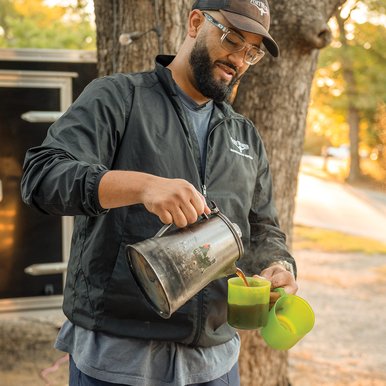
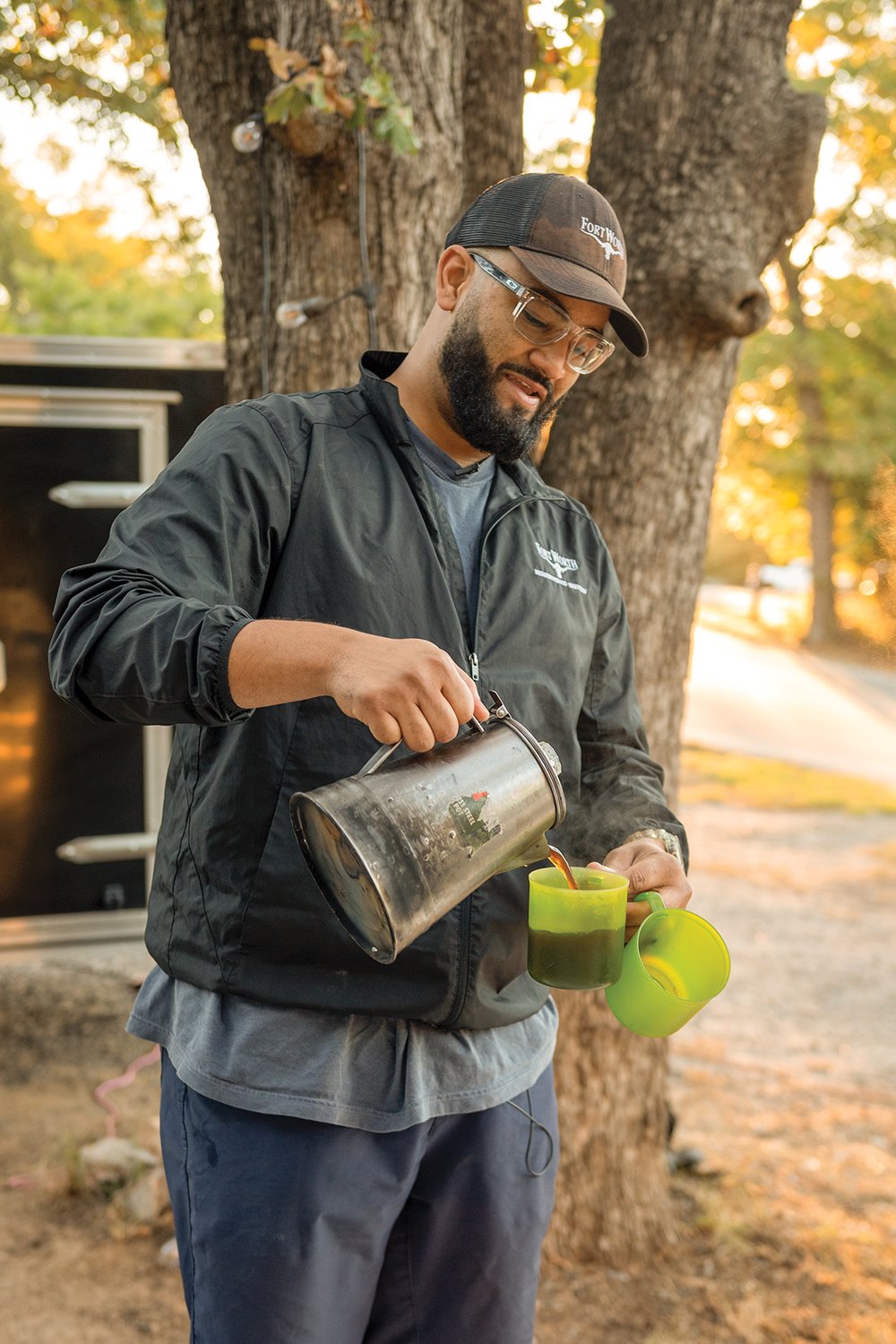
Maegan Lanham; Texas Parks And Wildlife Television
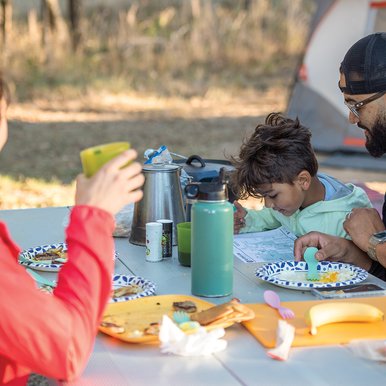
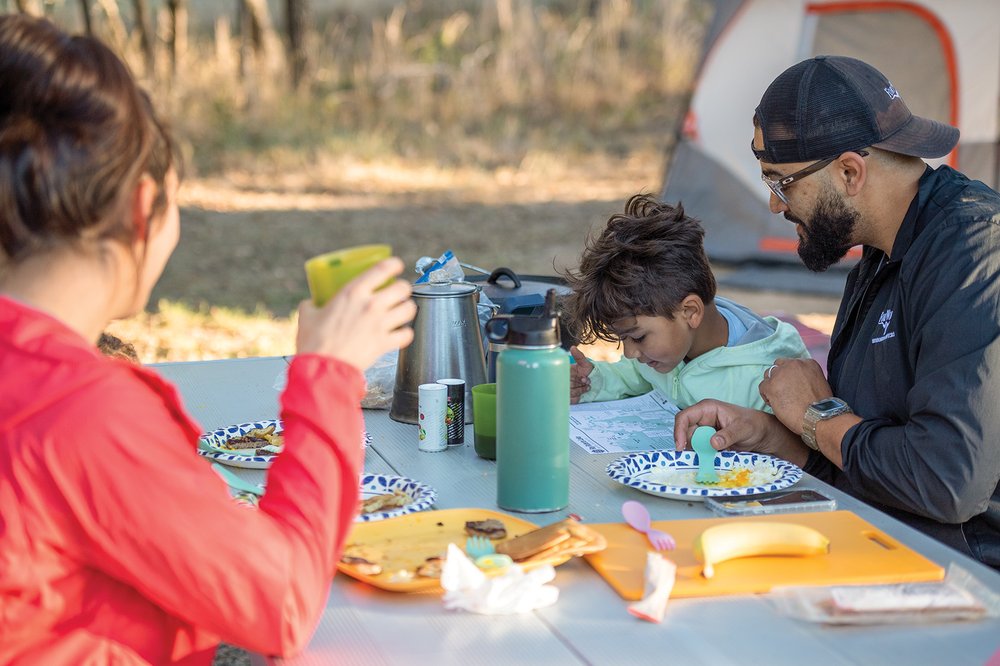
Maegan Lanham; Texas Parks And Wildlife Television
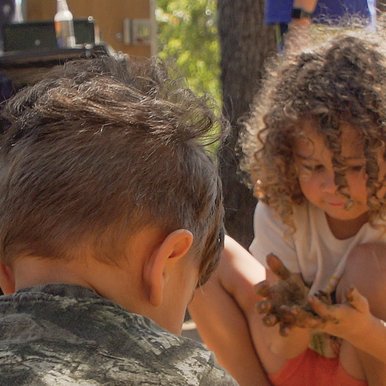
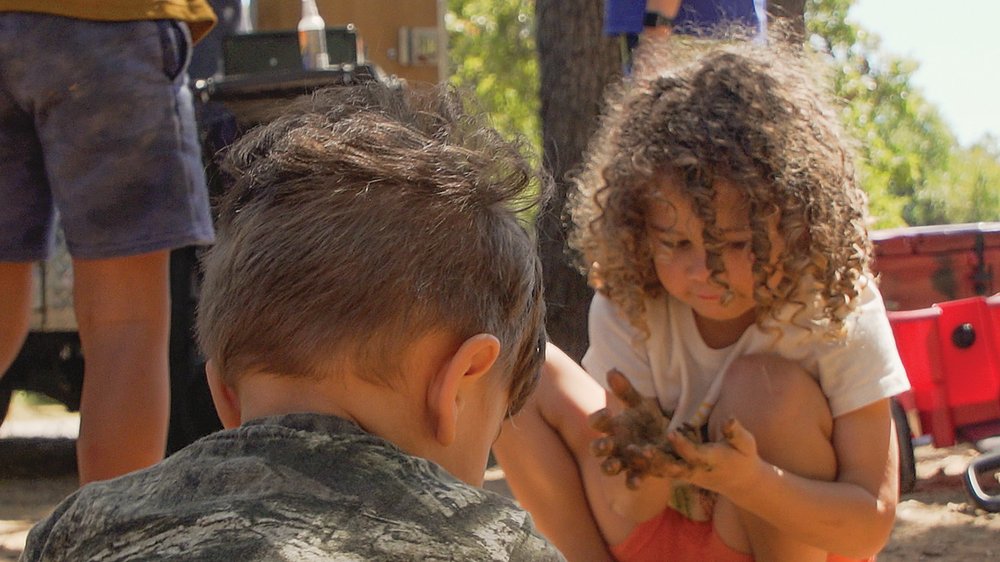
Maegan Lanham; Texas Parks And Wildlife Television
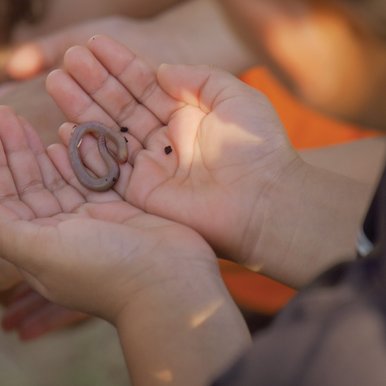
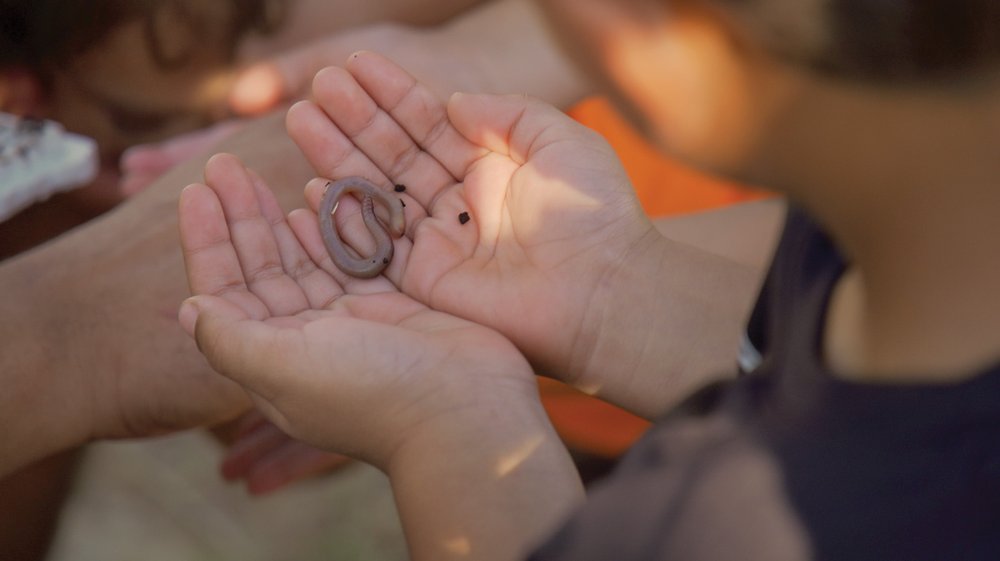
Maegan Lanham; Texas Parks And Wildlife Television
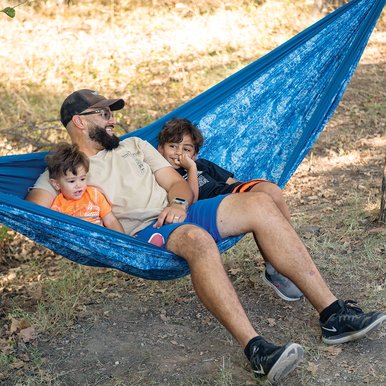
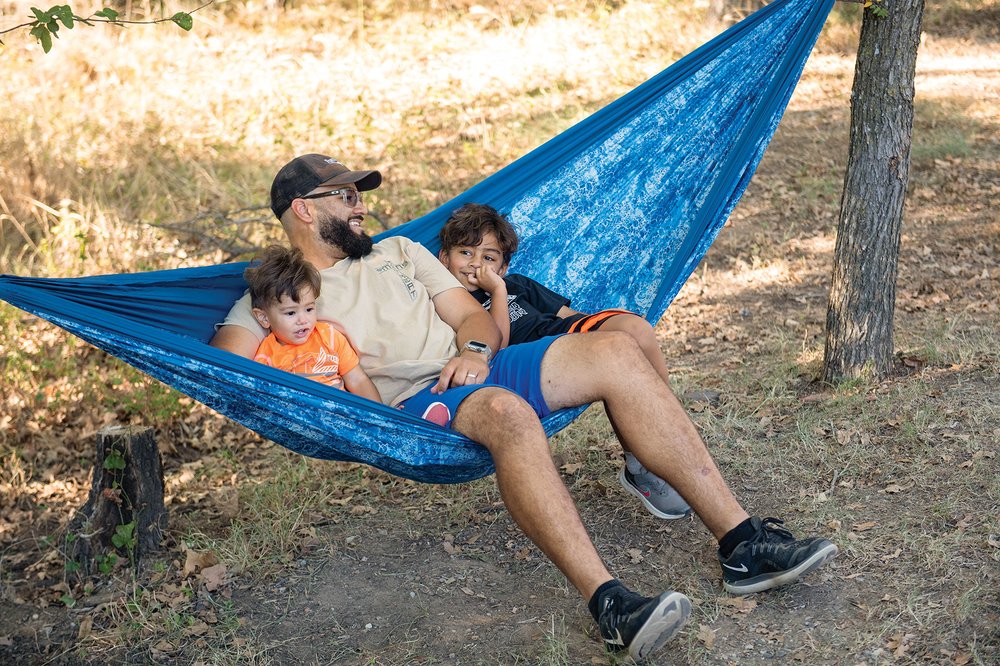
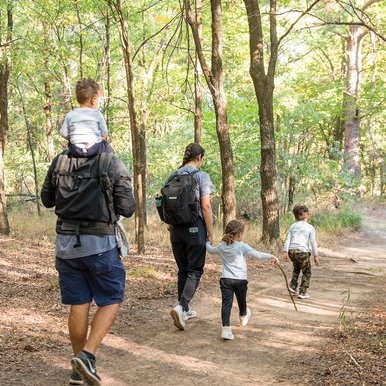
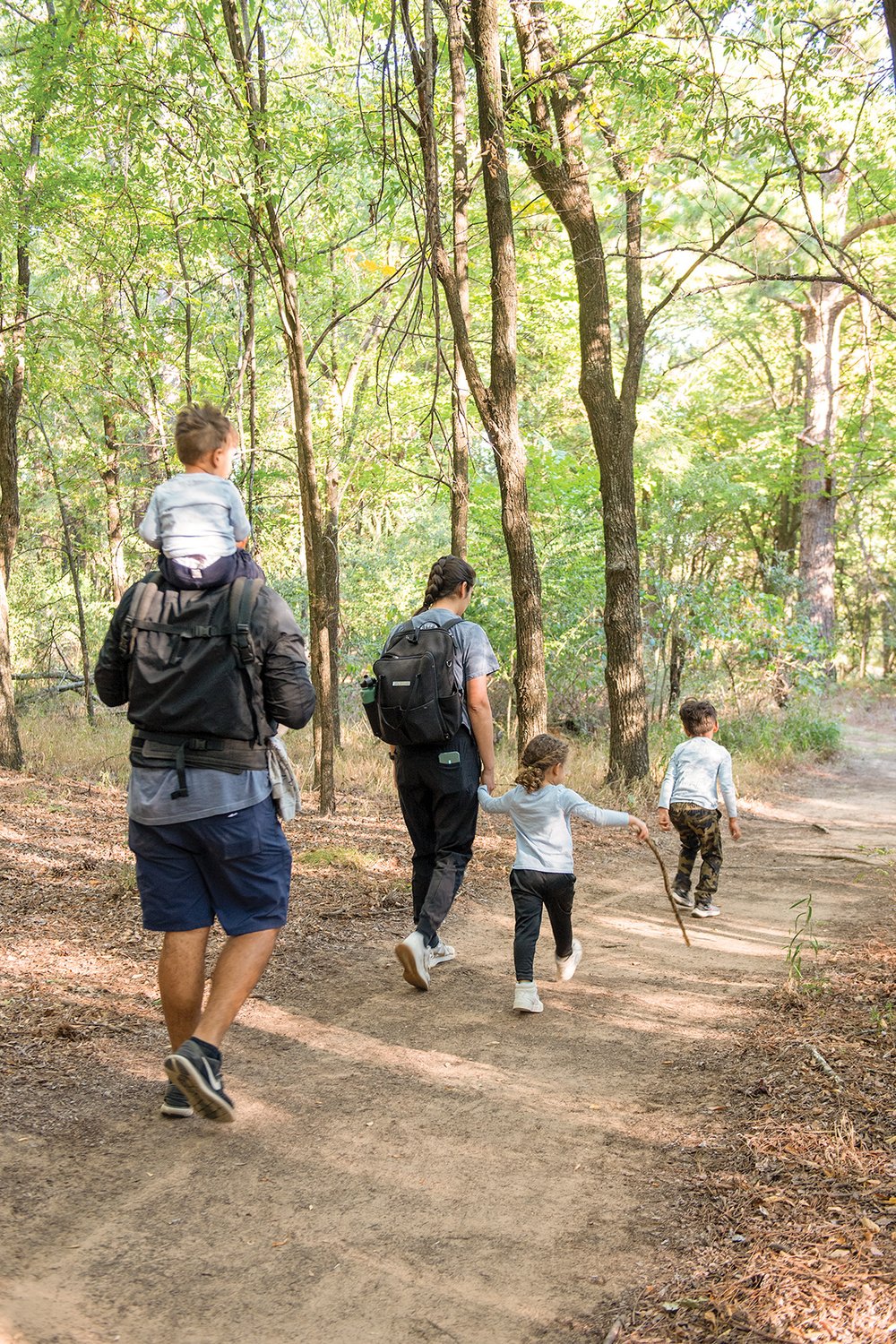
Maegan Lanham; Texas Parks And Wildlife Television
FISHING AT THE LAKE
DOWN BY THE LAKE, a lone angler is thinking of the times he spent at the park as a kid.
“My first fishing memories were here with my dad,” says Phillip Thornton. “He died in 2021, and I started coming out here with his old gear.”
Phillip learned to fish here and has honed his technique through “a whole lot of frustration and also a whole lot of joy.”
Now, the lake is his retreat from the city.
“One of the things I love about this lake is that there’s a lot of good aquatic vegetation with places for bass to hide,” he says. “If you spend enough time at this lake, you’ll eventually catch something big.”
In fact, Ray Roberts is considered one of the best bass fishing lakes in Texas. Several pro tournaments have been held here, including the “world championship” of bass fishing, the Bassmaster Classic (first prize: $300,000).
Every angler has a story, and Phillip doesn’t disappoint.
“It was 10 o’clock at night, windy waves crashing over the rocks,” he says. “I had just driven into town from New Mexico, and I was like: ‘I need to go fishing.’ I came out here, caught a massive drum and was home in 30 minutes.”
Standing by the calm water, Phillip feels at peace. He knows from experience that fishing is about more than just catching fish. He believes it’s good for his mental and emotional health.
Then, boom! He feels a tug on his line and reels in a nice-sized bass.
“You go home with a smile on your face,” he says, “and sometimes a good story.”
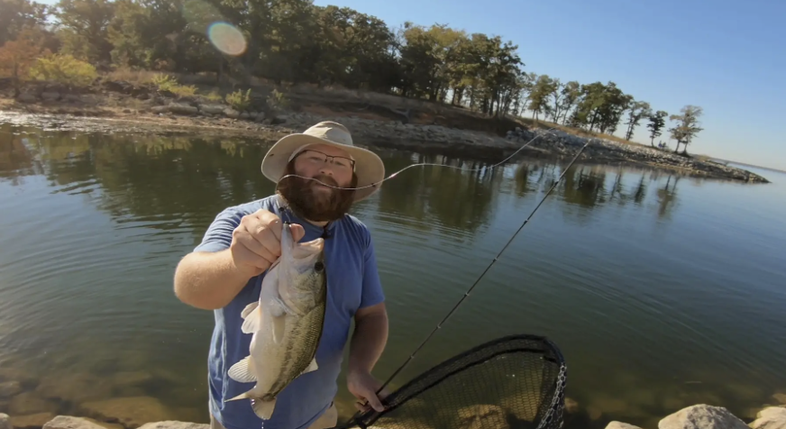
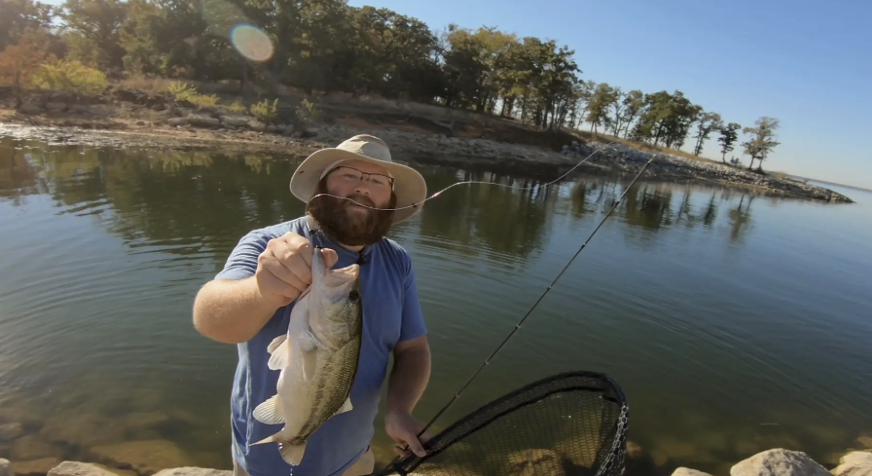
Phillip Thornton shows his catch.
Texas Parks and Wildlife Television
Phillip Thornton shows his catch.
Texas Parks and Wildlife Television
RANGER TALK
IF DOGS COULD talk, Pepper and Palmer would be chattering a mile a minute. Their humans, Debi and Robert Kaiser, bring their dogs on a “sniffari” here every morning.
“It’s perfect because you don’t have any traffic,” says Debi. “There are paved trails, walking trails, rougher hiking trails. We walk all of them.”
Dog owners are such enthusiastic park visitors that many parks now offer “Bark Ranger” hikes.
Park ranger Mindy Shumate is always on the lookout for new ways to help visitors connect with the park. Her job title is park interpreter, and she leads activities such as full moon walks, guided kayaking trips and Fishing 101 events.
Research shows that people who didn’t grow up going to state parks tend to assume they’re strictly for outdoorsy types. Park interpreters like Mindy are working to change that perception.
“My mission is to help people fall in love with the park,” she says. “When brainstorming program ideas, I like to approach it from the guest perspective. For example, my ‘Sounds of the Night’ program is about wildlife that people may hear when visiting after sunset. If you’re not used to being out in nature, these noises can be scary. Campers can sleep easier at night when they know it’s just an armadillo rustling in the leaves.”
Mindy is thrilled to be living out a life goal.
“When I was a little, I wanted to be like my idol, Steve Irwin [the Australian zookeeper and television personality],” she says. “I wanted to help any and every animal and do my part in conservation. As I grew up, I gained an appreciation for what it was Steve Irwin truly instilled in me: enthusiasm for sharing that passion for wildlife and conservation.”
Today Mindy is offering two different programs: a “Snake Sense” talk that features nonvenomous snakes and an “Animal Signs” hike to look for signs of wildlife such as tracks, burrows, “chews” and scat (otherwise known as animal poop, much to the delight of younger visitors).
The Hatcher kids are excited to see some snakes. As they head over from the Nature Center to catch the show, another group of visitors heads deeper into the woods.
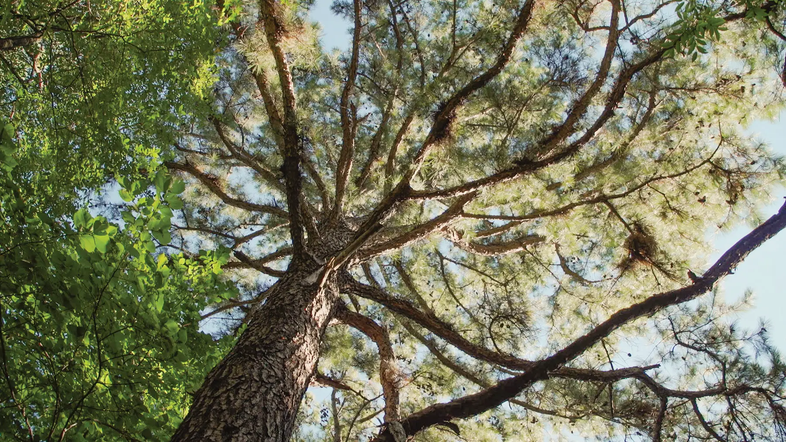
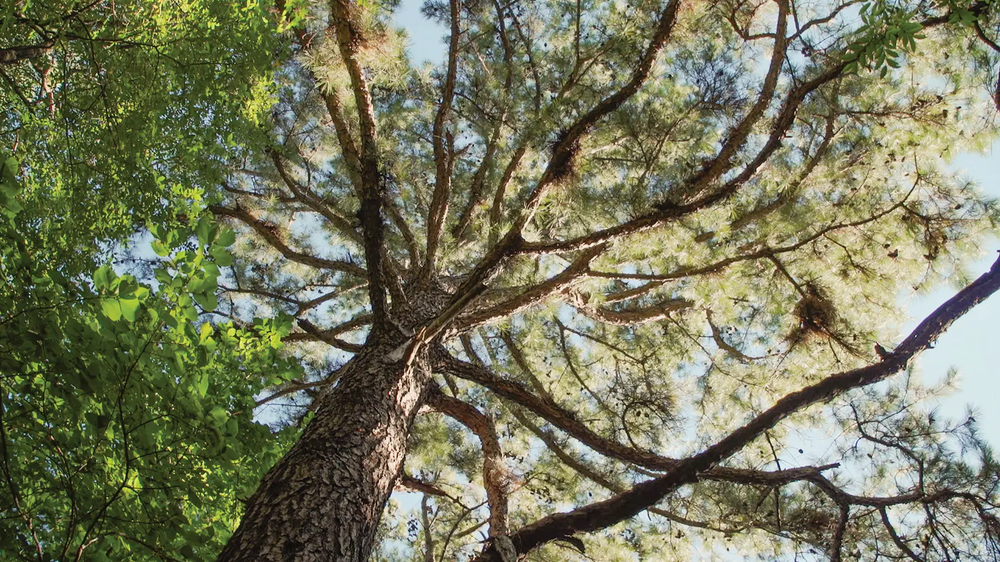
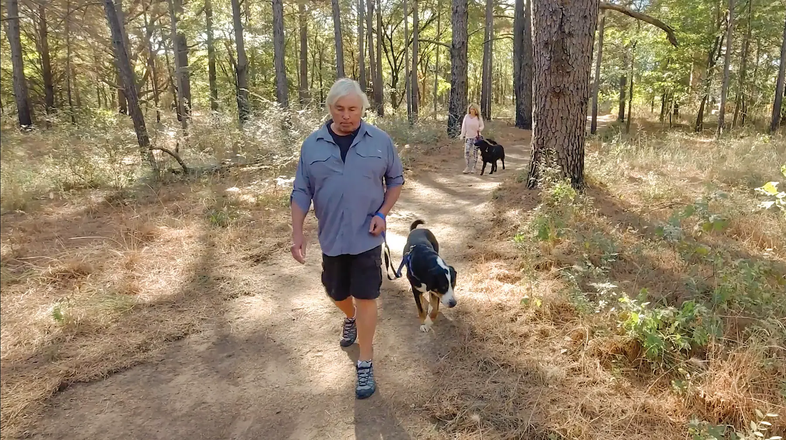
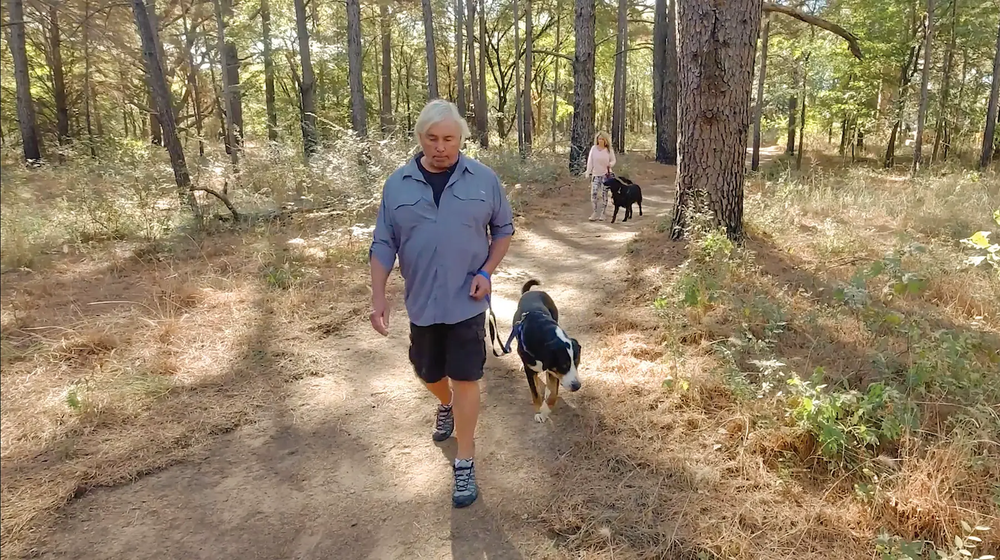
Maegan Lanham
Maegan Lanham
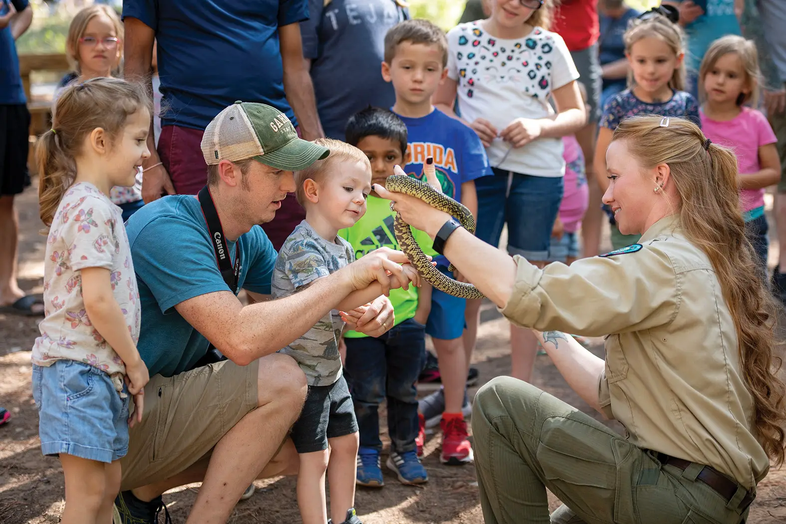
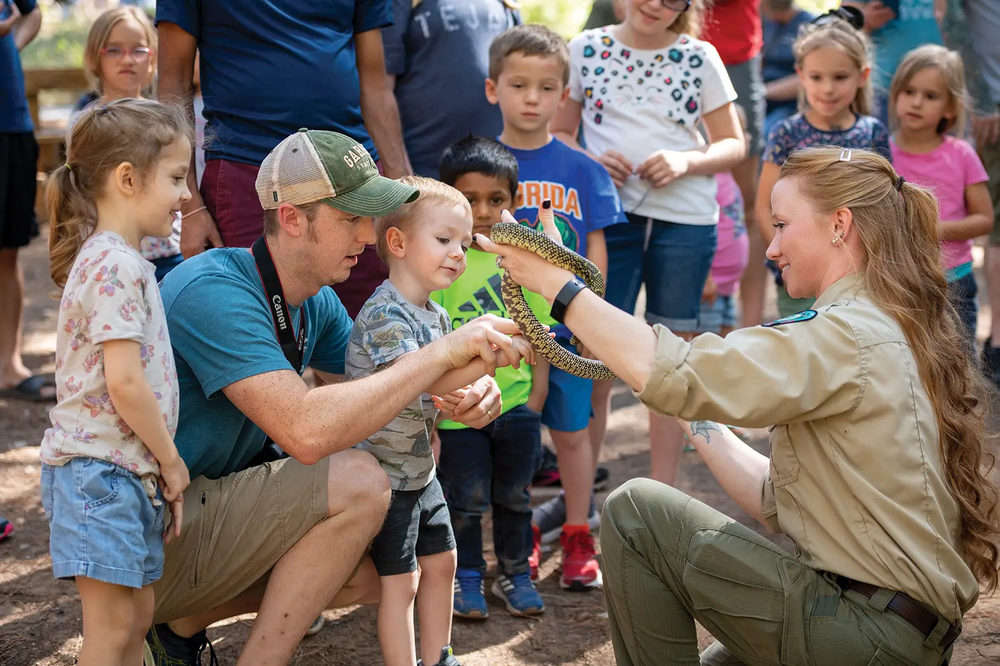
Park ranger Mindy Shumate leads a snake program.
Texas Parks And Wildlife Television
Park ranger Mindy Shumate leads a snake program.
Texas Parks And Wildlife Television
RIDING THE TRAILS
“THIS IS MY therapy. This is my meditation,” says Gail Cotton-Michaud from Plano, sitting on her horse Gazelle.
Gail and her friends are riding some of the park’s 26 miles of equestrian trails.
“I begged for a horse all my life,” Gail says. “I finally got one about 12 years ago. Didn’t even know how to put the saddle on.”
Since then, Gail has found a group of friends through the Lake Ray Roberts Equestrian Trails Association, a group that partners with the park to make it a destination for trail riders.
“I think the horses really enjoy getting out as much as we do,” says Linda Moore, the association’s president. “If you look at the horses going down the trail, their ears are forward because they’re interested in what's going on. Horses, just like their riders, like to socialize. They like to come out with their buddies and ride with another horse.”
Whipping through the woods on a different kind of ride, members of the Dallas Off-Road Bike Association (DORBA) are navigating the park’s bike trails at heart-pumping speed.
“It’s very tight and twisty,” says Meagan Alpha from Argyle. She enjoys maneuvering around the natural “rock gardens” that challenge a rider’s handling skills. “The advantage of coming to the state park is the trails are a bit more technical than other trails.”
DORBA is an 1,800-member volunteer group that promotes and maintains off-road cycling trails in North Texas. The group offers riding workshops, trail maintenance days and group rides.
Shawn Smith, from Grapevine, explains the appeal: “You’re out in the elements. You don’t have to think about pedestrians or cars or if somebody is texting and not paying attention. You keep moving forward.”
As the trees fly by, the world is reduced to trail and wind and adrenaline. Working out the challenges of the trail can help with the bigger challenges of life.
“You do a puzzle of the technical climbs and the sections for the drops,” Shawn says. “It’s my opportunity to think about everything that’s going on in my life. I feel it kind of gives me creativity to solve problems.”
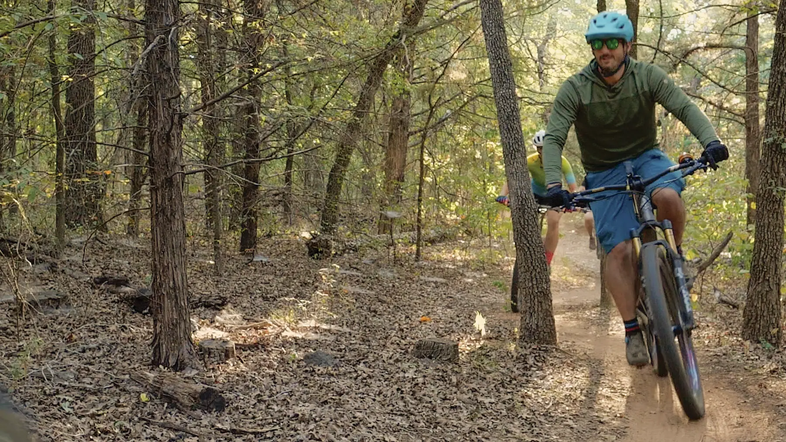
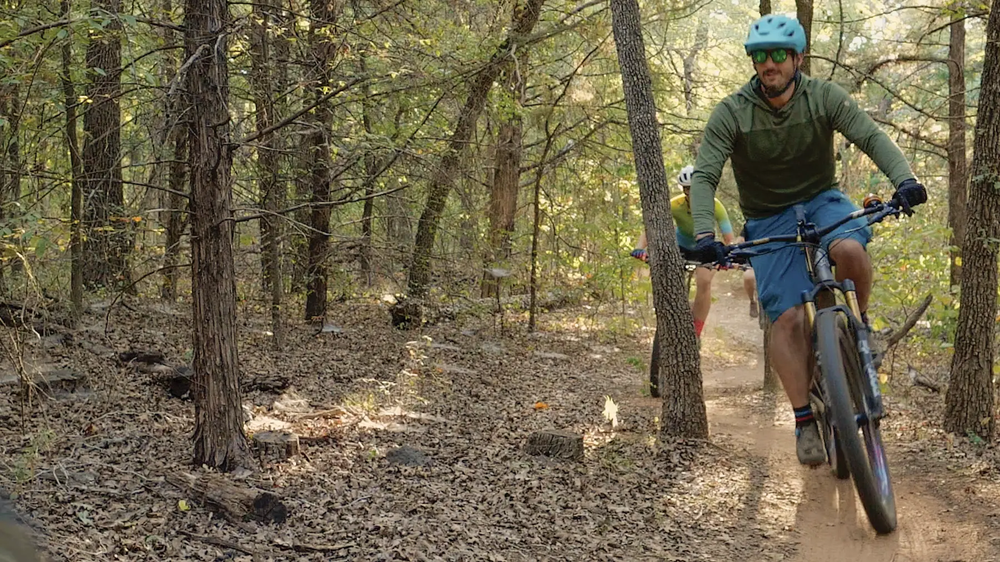
Texas Parks And Wildlife Television
Texas Parks And Wildlife Television
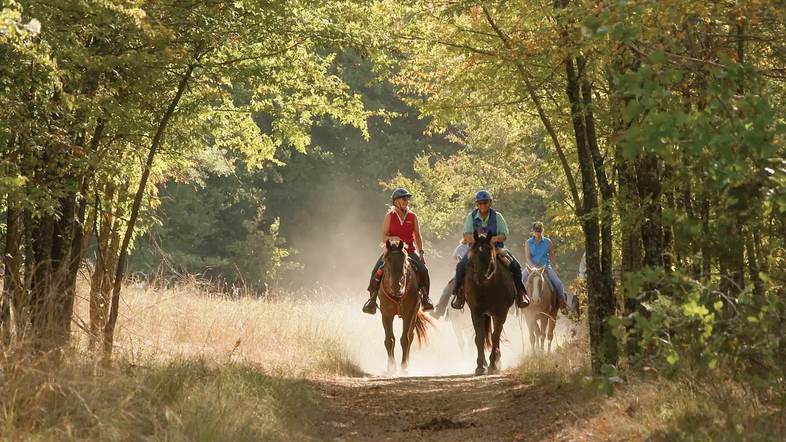
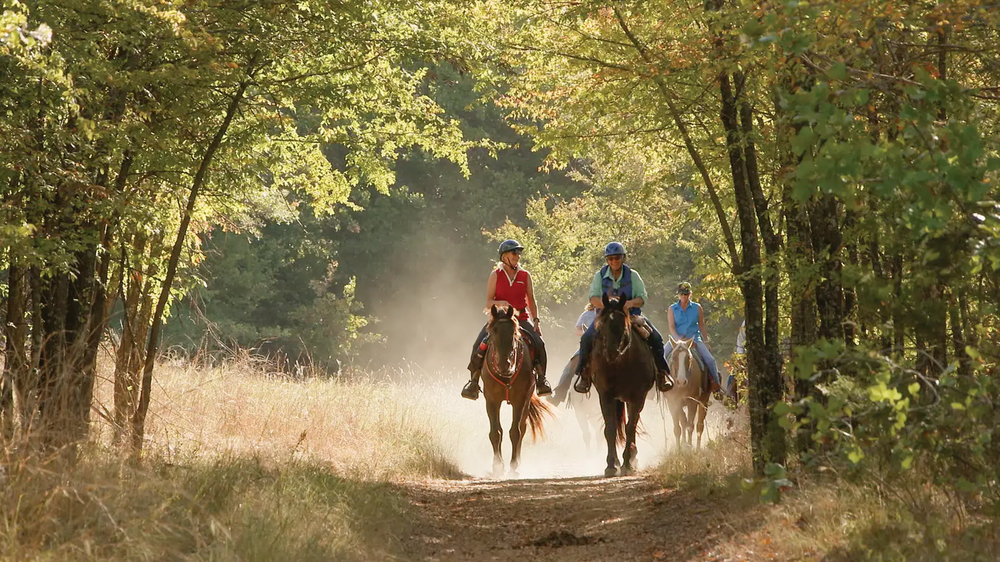
Texas Parks And Wildlife Television
Texas Parks And Wildlife Television
SPARK OF THE OUTDOORS
ROBBIE, THE PARK superintendent, is hoping today remains relatively problem-free. He oversees a lot of moving parts: park maintenance, visitor safety and coordination of the many different groups that interact with the park, from local municipalities to volunteers.
Not to mention, he says, “It’s a constant battle to keep the restrooms clean.”
Robbie moved his family to Ray Roberts two years ago from Lake Corpus Christi State Park. “I forgot how much I missed the shade,” he laughs.
While on the coast, his wife — a teacher — had students who had never been to the beach. It’s important to her and Robbie that their kids have new experiences.
Robbie himself didn’t grow up in an outdoorsy family. His love of the outdoors was sparked by a childhood friend whose family let him tag along on their outings. Now he strives to kindle that spark in others. He makes it a point to get out and greet visitors around the park.
“I don’t want visitors to just see us as the people who check them in,” he says. “I want them to have a positive interaction with us.”
This afternoon, the day-use area by the lake is full of activity. Families barbecue. Kids squeal. Teens splash each other in the water. A group of millennials plays volleyball, and two teams engage in a spirited soccer match.
Robbie stops to chat with some visitors, thanking them for coming out to the park. And he means it.
“I want to help people have the best experience they can have,” he says.
As afternoon melts into evening, golden sunlight spills over the water. A couple sits side by side in their folding chairs, the view inspiring one of them to reach out to the other.
Over at Campsite 50, the Hatcher family roasts marshmallows. Marcus hopes the kids remember these moments, like he does from camping with his parents.
For most park visitors, this day will live on long past the setting sun. They’ll tuck away the memories, returning to them again and again.
And that’s why Robbie will get up and do it all over again tomorrow.
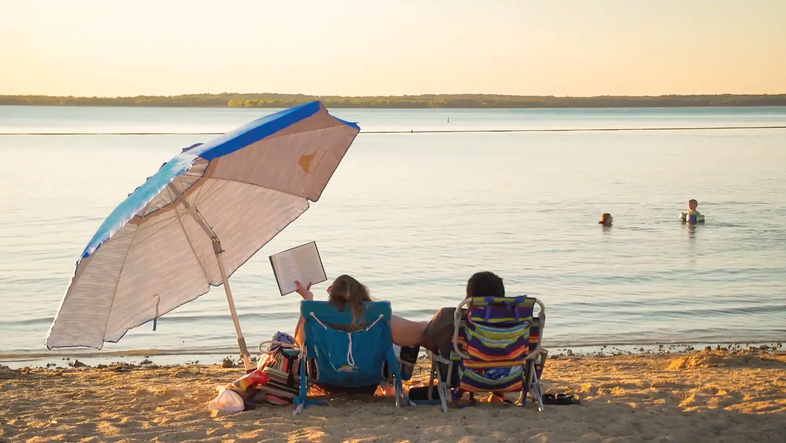
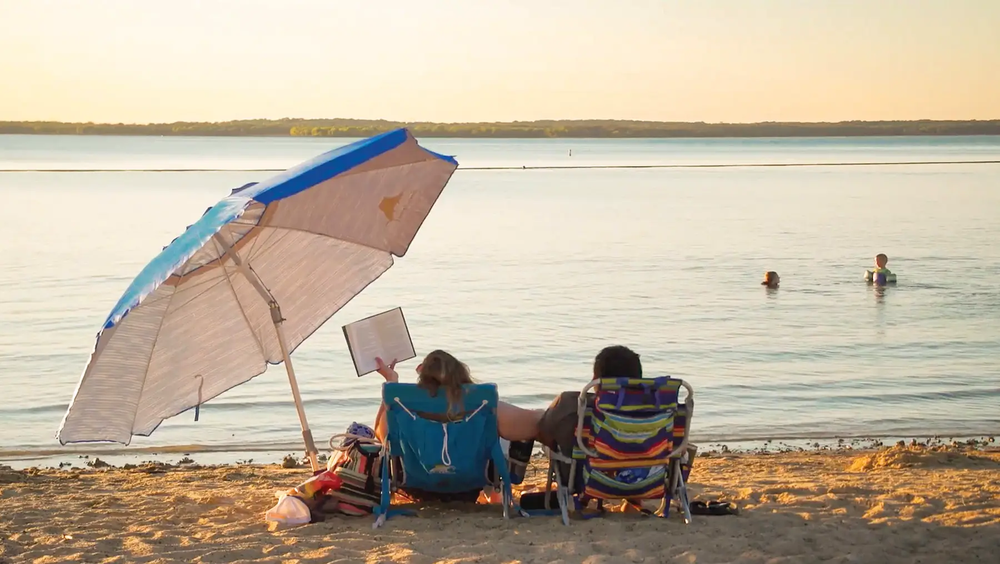
Texas Parks And Wildlife Television
Texas Parks And Wildlife Television
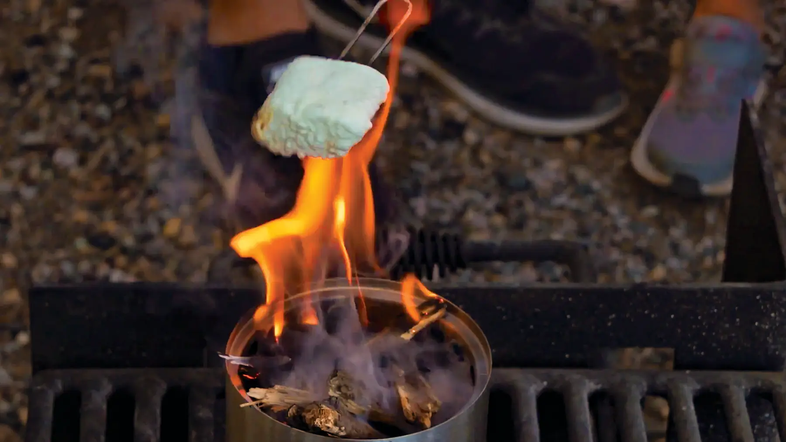
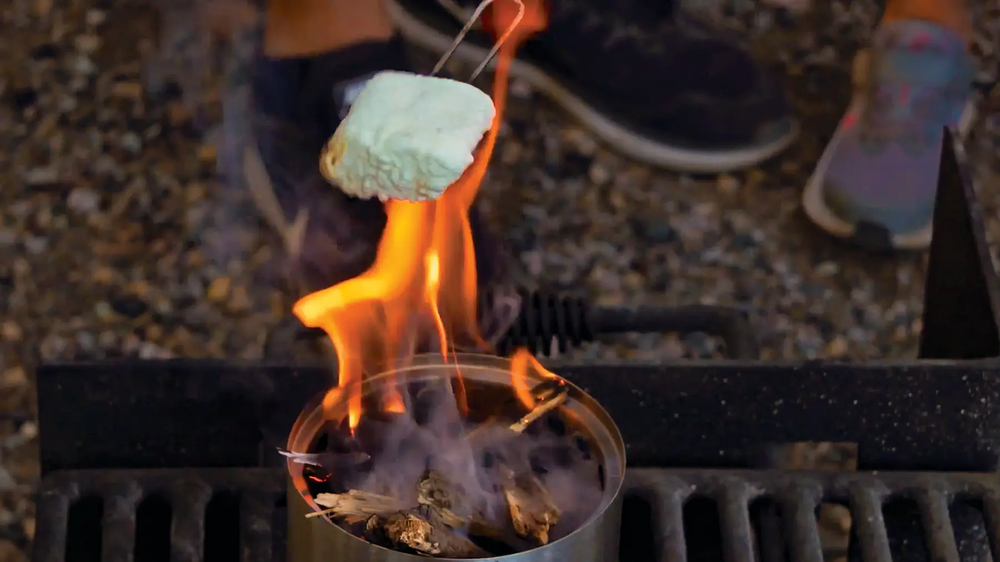
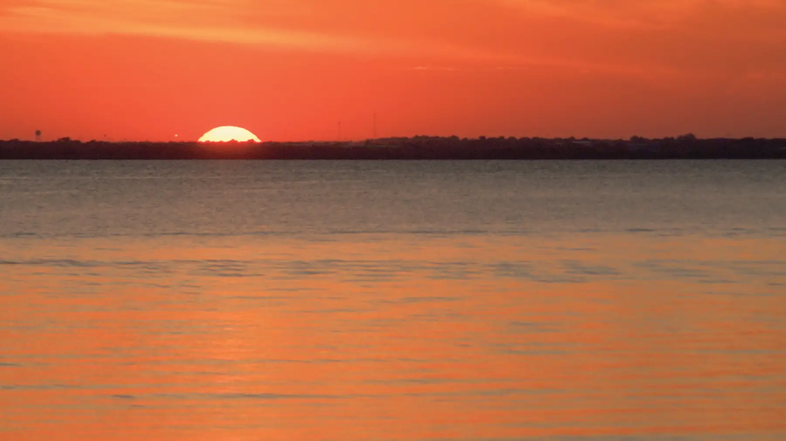
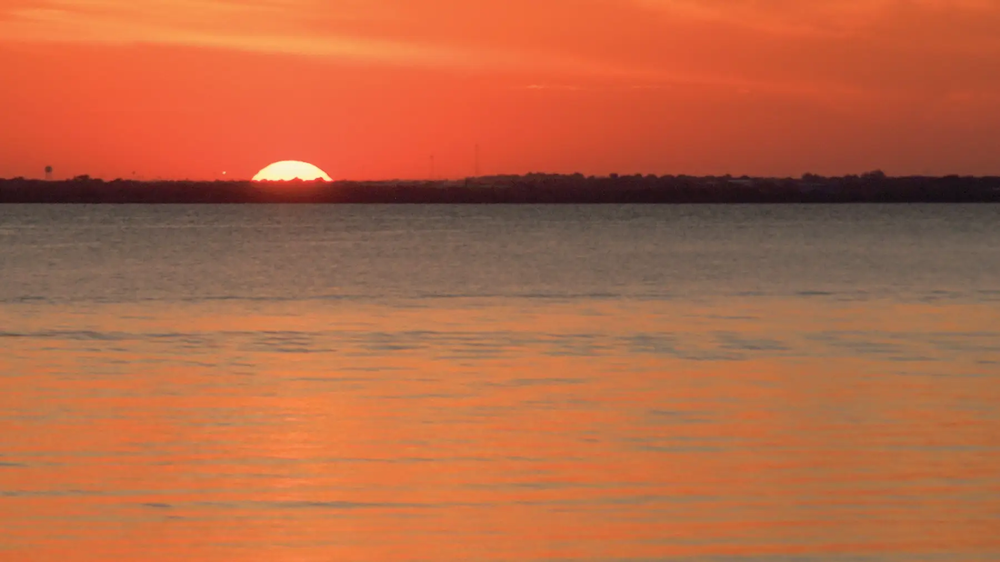
Sunset over Ray Roberts Lake.
Texas Parks And Wildlife Television
Sunset over Ray Roberts Lake.
Texas Parks And Wildlife Television
